There is no definitive answer to this question as it depends on the specific wireless charger and battery type of the phone being used. Some wireless chargers are designed to only work with certain types of batteries, and leaving a phone on one of these chargers overnight could potentially damage the battery. Additionally, some wireless chargers may not be designed to work with a phone that is left on them for an extended period of time, potentially causing the phone to overheat or even catch on fire. It is always best to use caution when charging any device, and it is always recommended that you read the manufacturer’s instructions before using a wireless charger.
The basics
It is safe to leave a phone on a wireless charger overnight, as long as the charger is in good working order and the phone is not damaged. Make sure the phone is correctly charged before leaving it on the charger, and be aware that wireless charging can be a little bit slow.
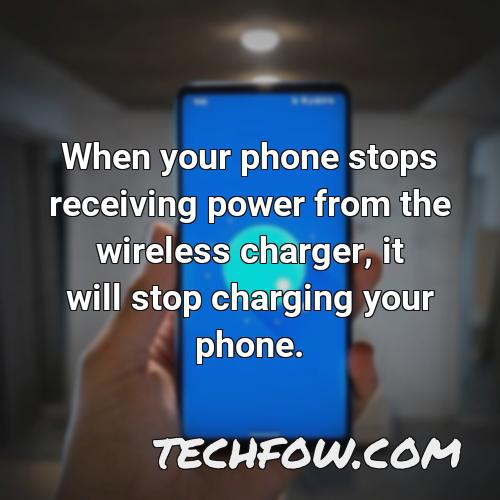
Is It Okay to Leave My Phone on a Wireless Charger Overnight
Some smartphone manufacturers say that it is okay to leave your phone connected to a wireless charger overnight. This means that your phone will be receiving power from the wireless charger and will not need to be plugged into a power source. Keeping your battery level as close to the middle (30% to 70%) s possible can effectively prolong the battery life.
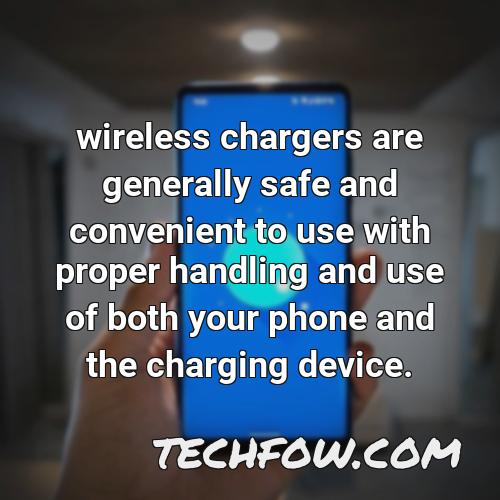
Do Wireless Chargers Stop at 100%
When your phone stops receiving power from the wireless charger, it will stop charging your phone. Leaving your phone on a wireless charging station overnight will ensure that it does not overcharge and will have a sound sleep.
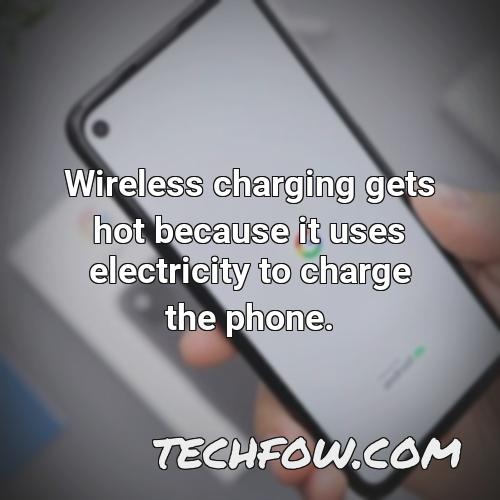
Are Wireless Chargers Good for Your Phone
wireless chargers are generally safe and convenient to use with proper handling and use of both your phone and the charging device.
it also boils down to the quality of wireless charging device you’re going to use, so pick one wisely.
-
Choose a wireless charger that is safe for your phone.
-
Choose a wireless charger that is convenient for your use.
-
Choose a wireless charger that has a good quality.
-
Choose a wireless charger that is compatible with your phone.
-
Choose a wireless charger that is easy to use.
-
Choose a wireless charger that is portable.
-
Choose a wireless charger that is affordable.
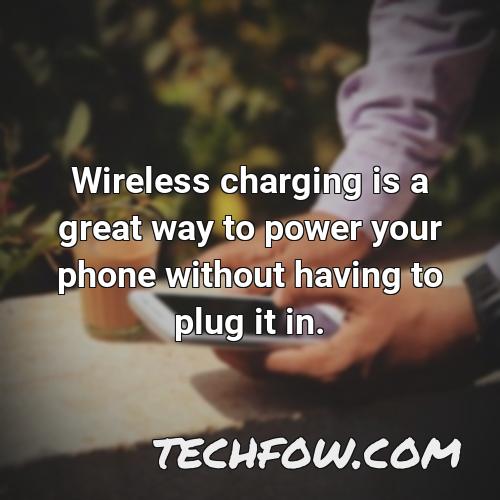
Is Wireless Charging Better or Worse for Battery
Wireless charging is the process of transferring power from an electric source to a device by using radio waves. The radio waves send a current through the wire, into the device, and then out the other side. This current charges the device battery. Wireless charging is less efficient and more power-consuming than wired charging. Studies have found that wireless charging averagely uses 47 per cent more power than wired charging. Wireless charging is also less common and not as compatible with devices as wired charging.
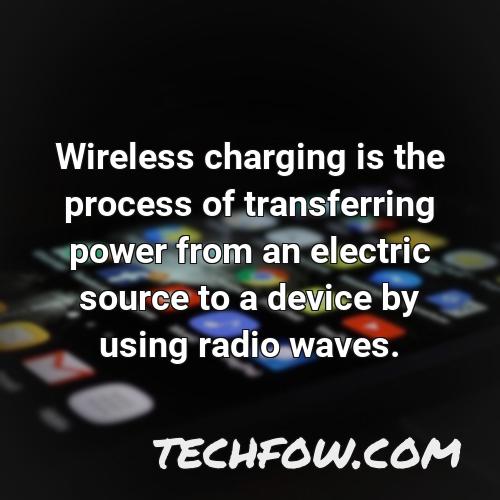
Why Does Wireless Charging Get Hot
Wireless charging gets hot because it uses electricity to charge the phone. If the phone and the charger are not in the right place, the phone and the charger will duel it out, and the phone will get too hot. There are ways to fix this problem, but it requires a bit of know-how. If you’re having trouble with your phone getting too hot, try these tips:
-
Make sure your phone is properly positioned on the wireless charging pad.
-
Try using a different charger.
-
Try using a different phone.
-
Try using a different wireless charging pad.
Can You Leave Iphone on Wireless Charger Overnight
No, it is not possible to exceed these limits by leaving your phone on the wireless charging pad for too long, or by leaving it plugged in overnight.
Why Do Wireless Chargers Stop Charging
Wireless charging is a great way to power your phone without having to plug it in. However, it can stop charging if your phone isn’t making a clean connection to the charging pad. One simple solution to this problem is to pick your Android up and reposition it. Make sure your phone is directly on the center of the charging pad. It’s also a good idea to wipe off the charging pad and the back of your Android.
To summarize it
There is no definitive answer to this question as it depends on the specific wireless charger and battery type of the phone being used. Some wireless chargers are designed to only work with certain types of batteries, and leaving a phone on one of these chargers overnight could potentially damage the battery. Additionally, some wireless chargers may not be designed to work with a phone that is left on them for an extended period of time, potentially causing the phone to overheat or even catch on fire. It is always best to use caution when charging any device, and it is always recommended that you read the manufacturer’s instructions before using a wireless charger.
